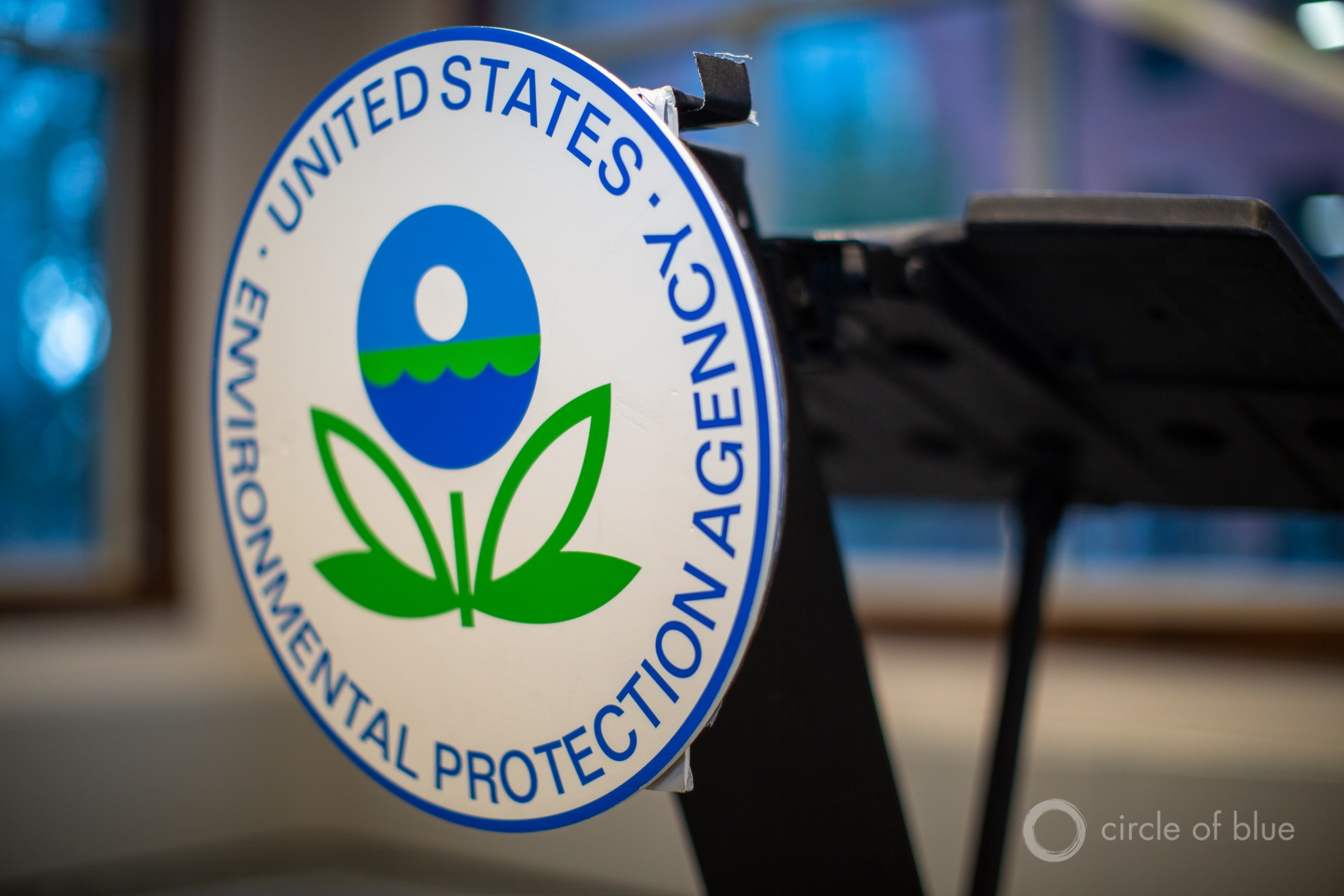EPA Nominee Regan Touts Collaboration during Senate Confirmation Hearing
North Carolina’s top environmental regulator would seek “common ground” if confirmed in the federal role.

Michael Regan has been nominated by President Joe Biden to run the U.S. Environmental Protection Agency. Photo © J. Carl Ganter/Circle of Blue
By Brett Walton, Circle of Blue
The Senate confirmation hearing for Michael Regan, President Joe Biden’s nominee to lead the U.S. Environmental Protection Agency, proceeded on February 3 with many lines of questioning but few serious objections to his qualifications for the job.
Regan has been the secretary of the North Carolina Department of Environmental Quality since 2017. Though he has a long history of working on water issues in that state, discussion of those topics took a backseat during the three-hour hearing. What came to the forefront was how Regan would approach being the country’s top environmental regulator.
Regan focused on his goals of collaborative decision-making and rebuilding the capacity of the EPA to respond to state and local needs. He said he would prioritize climate change response, environmental justice, and the pollution concerns of vulnerable communities. He said he would listen.
“Throughout my career I’ve learned if you want to address complex challenges, you must be able to see them from all sides and you must be willing to put yourself in other people’s shoes,” Regan said. “The best way to do that is by convening stakeholders, where they live, where they work, and where they serve, fostering an open dialogue rooted in the respect for science, a clear understanding of the law, and a commitment to building consensus with pragmatic solutions.”
On chemicals policy, Regan said that PFAS regulation will be a top priority. The EPA will be responsible for setting drinking water standards for two such chemicals, PFOA and PFOA. Regan added that he will pursue limits on industrial discharge of PFAS into water, which North Carolina has done, and he will look into regulations on air emission from PFAS incineration.
“I can commit to you that on day one that this is and will be a priority for this administration to set limits on how much of this chemical compound is entering into our air and our water,” Regan said.
Sen. Roger Wicker (R-MS) asked Regan how he would help rural communities fund, finance, and acquire the technical expertise to operate their drinking water and sewer systems.
“We’ve got to find a way to partner with these water associations, invest in this infrastructure so that we can do a couple things,” Regan replied. “The first is that we can protect water quality. But number two, without this infrastructure these rural towns and cities are lagging behind in the ability to develop economically and attract businesses.”
Continuing this line of questioning, Sen. Dan Sullivan (R-AK) wanted assurance that Regan would focus attention on Alaska Native communities that do not have running water or flush toilets. Regan said he would.
Sen. John Boozman (R-AR) asked Regan about federal rules that define the scope of the Clean Water Act. The EPA under the Trump administration repealed an Obama-era rule and replaced it with a much narrower definition that excluded many wetlands and streams that flow only after rainfall.
Regan responded as he did throughout the hearing: by saying that he would seek “common ground” among multiple groups of stakeholders in order to end the regulatory seesawing between the last two administrations that resulted in sharp swings in how the rules were defined.
Regan said he would look for a “pragmatic approach that doesn’t overburden the farmer. But we don’t have to sacrifice precious wetlands in North Carolina, like our Carolina bays.” That pragmatic approach, he said, would follow science and give states flexibility to protect both water quality and local economies.
Regan returned repeatedly to his experience in North Carolina, where he worked to clean up coal ash contamination, prioritized the harmful effects of pollution on communities of color and poverty, and directed attention to the financial problems of rural water systems.
North Carolina’s senators, both Republicans, heartily endorsed Regan.
Sen. Richard Burr said that Regan’s work with rural agricultural communities was “constructive, not adversarial.”
Sen. Thom Tillis, meanwhile, said that Regan has a track record of listening and being fair in his decisions.
“At the end of the day, I think we have a great, well qualified nominee before us,” Tillis said.
Brett writes about agriculture, energy, infrastructure, and the politics and economics of water in the United States. He also writes the Federal Water Tap, Circle of Blue’s weekly digest of U.S. government water news. He is the winner of two Society of Environmental Journalists reporting awards, one of the top honors in American environmental journalism: first place for explanatory reporting for a series on septic system pollution in the United States(2016) and third place for beat reporting in a small market (2014). He received the Sierra Club’s Distinguished Service Award in 2018. Brett lives in Seattle, where he hikes the mountains and bakes pies. Contact Brett Walton












Leave a Reply
Want to join the discussion?Feel free to contribute!